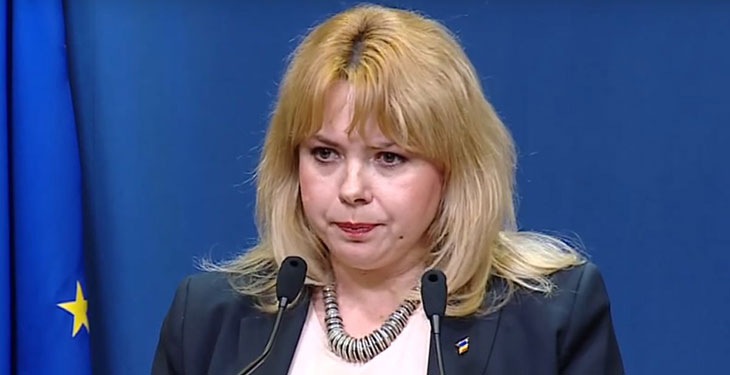Delaying the payment of electricity bills is an unfortunate solution for the energy system, instead the Government should inject liquidity into the system, said the Deputy GM of E.ON Romania, Anca Dragu, at a conference.
“This postponement of the payment of invoices for 3 months has been long discussed. Of course, there are individuals, domestic consumers or companies, who may have difficulties during this period with the payment of invoices. However, simply stopping the payment of the invoices, the deferment of payment is a unfortunate solution, because it creates a liquidity gap for the supply companies.
”It is a logical chain: the suppliers collect these invoices and then pay the distribution, pay the transmission system, pay the producers and ensure the continuity of the process. To simply cut this chain it is a partial solution, which distorts the whole process. What should really be put in place is a mechanism for injecting liquidity into the system. The fact that we cut the liquidity here and there doesn’t help us absolutely by nothing to overcome the crisis, on the contrary, it endangers the investment plans for the current period, especially for the relaunch, when the lockdown is over,” said Anca Dragu, according to Agerpres.
The E.ON Romania official also said that the measure of the deferral of rates on energy utilities affects only the suppliers, not the producers and distributors.
“Regarding the situation of the cash flow of the producers – they were not affected. At this moment we see that only the suppliers have taken over this burden of delaying payments: there is no regulatory framework, a legal framework to say that if you collected 80%, you pay 80% more to the transmission and to the production. It would not be a natural measure either, it would be a balanced burden distribution, but the idea is to bring cash into the system, not to run to get rid of this obligation. So it would be fair for the system to divide the burden and reach up to the producer, but in fact it would be fairer that this should not even exist and then the state to intervene, as in a crisis situation the role of the state is seen, to come with this solution of liquidity injection to protect businesses, consumers and suppliers,” Dragu said.
